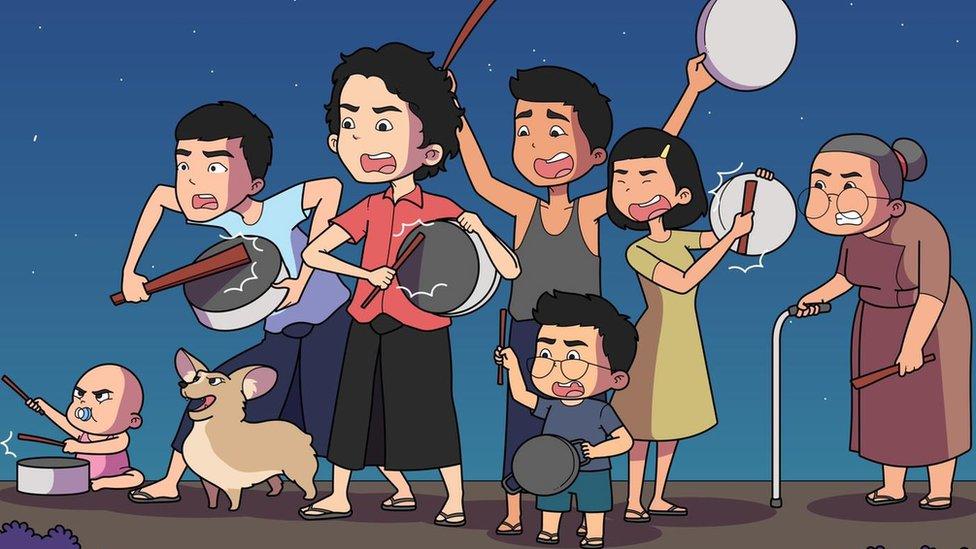Myanmar coup: Tens of thousands join largest protests since 2007
- Published
Tens of thousands of people take part in the largest protest in Myanmar in more than a decade
Myanmar has seen its largest protests in more than a decade, as tens of thousands of people rallied against the military coup and demanded the release of elected leader Aung San Suu Kyi.
"We don't want military dictatorship. We want democracy," the crowds chanted in the main city, Yangon. Rallies were held in more than a dozen other cities.
Internet access has now been restored after a day-long blackout.
The army has not yet commented on the growing opposition to Monday's coup.
The military seized power after claiming, without evidence, that the November election was fraudulent. The rulers declared a year-long state of emergency and have been hunkered down in the capital, Nay Pyi Daw.
Ms Suu Kyi and senior leaders of her National League for Democracy Party (NLD), including President Win Myint, have been put under house arrest.
In Yangon, people wore red shirts and held red balloons, the colour of Ms Suu Kyi's party, while cars and buses slowed to sound their horns in support. Many flashed the three-finger salute, a symbol of defiance against authoritarianism in the region.
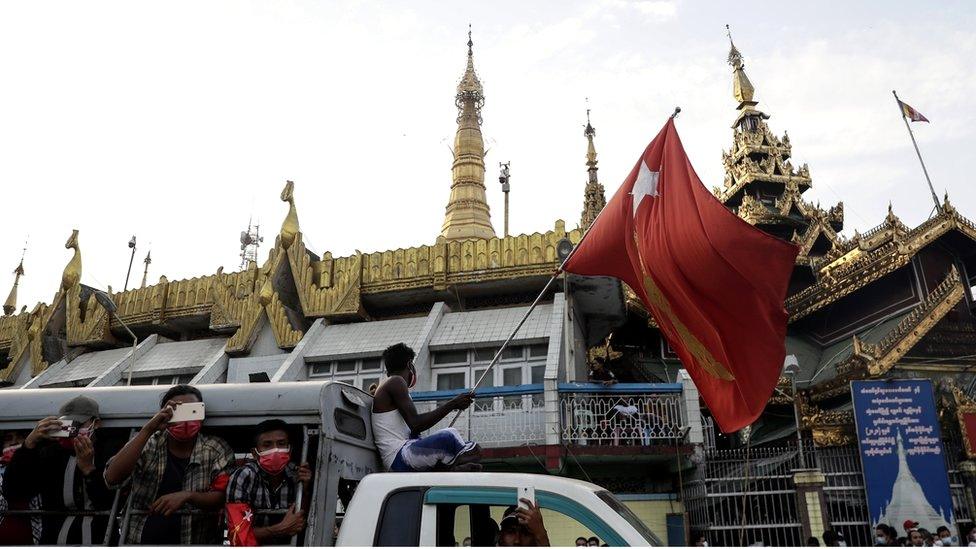
Demonstrators waved flags of the National League for Democracy (NLD) party in Yangon
The internet shutdown imposed by the military failed to curb the protesters. "Respect our vote," read one banner, in reference to the NLD's landslide win in November.
Sunday's protests in Yangon were the biggest since the so-called Saffron Revolution in 2007, when thousands of the country's monks rose up against the military regime.
Crowds marched towards the Sule Pagoda in the city centre while police vehicles and officers in riot gear were stationed near Yangon University. There were no immediate reports of violence.
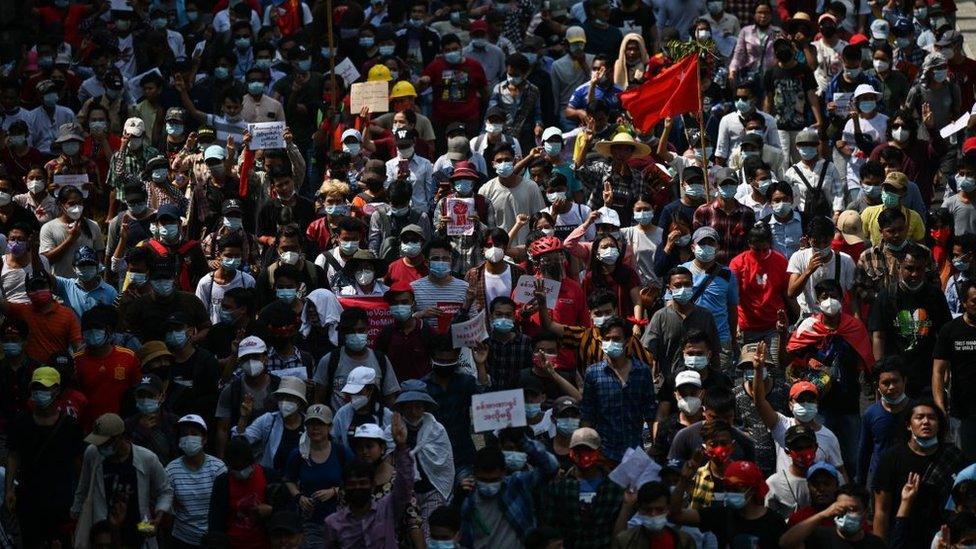
Anti-coup protesters gathered in Yangon on Sunday despite an internet shutdown
"First, we don't want to go back to military rule. We don't want to live in fear. Secondly, we want Mother Su to be freed from being under detention unjustly," a protester told the BBC. "And third, we want to root out the system where soldiers take civilian administrative positions."
Another demonstrator said that Ms Suu Kyi was "our true leader", adding: "She is our only hope for our democracy, if she died or something happened to her, what is our future? We really need her back."
A third said: "This protest is not the end. We'll group... [every day] until we're free from the dictatorship."
Smaller protests were also held in Nay Pyi Daw, Mawlamine and Mandalay, the country's second-largest city.
In the town of Myawaddy, there were reports of shots being fired, but no immediate reports of any injuries. According to some local media outlets, police had used rubber bullets to break up a rally.

Openly angry, quietly afraid
By Nyein Chan, BBC Burmese, Yangon
People from all different backgrounds, not just students and activists, have joined the protests in Yangon. They shouted anti-military slogans and sang famous revolutionary songs from the 1988 student uprising against the military regime.
The atmosphere was charged and protesters were defiant. They are angry but also quietly afraid.
They know that the military is capable of using violence to suppress dissent but they feel like they have no choice.
When a group of protesters met a row of soldiers they chanted at them: "You're trained to be professional soldiers, do not kill civilians."

Internet returns
The monitoring group NetBlocks Internet Observatory said connectivity rose to about 50% by 14:00 local time (07:30 GMT) but access to social media, including Facebook and Twitter, remained blocked.
The shutdown was criticised by human rights groups. Amnesty International said the blackout was "heinous and reckless" and warned it could put people at risk of human rights violations.
The United Nations special rapporteur on Myanmar, Tom Andrews, called on the agency's Human Rights Council to convene a special session on the "unfolding crisis", saying: "[The] junta must stand down now."
The coup took place as a new session of parliament was set to open. Many Burmese watched events unfold in real time on Facebook, which is the country's primary source of information and news.
"We wish them to fall": Teachers in the city of Yangon have joined protests against Monday's military coup
Myanmar at a glance
Myanmar is a country of 54 million people in South East Asia which shares borders with Bangladesh, India, China, Thailand and Laos.
It was ruled by an oppressive military government from 1962 to 2011, either directly or indirectly, leading to international condemnation and sanctions.
Aung San Suu Kyi spent years campaigning for democratic reforms. A gradual liberalisation began in 2010, though the military still retained considerable influence.
A government led by Ms Suu Kyi came to power after free elections in 2015. But a deadly military crackdown two years later on Rohingya Muslims sent hundreds of thousands fleeing to Bangladesh.
It triggered a rift between Ms Suu Kyi and her previous supporters in the international community after she refused to condemn the crackdown or describe it as ethnic cleansing. But she has remained hugely popular at home.
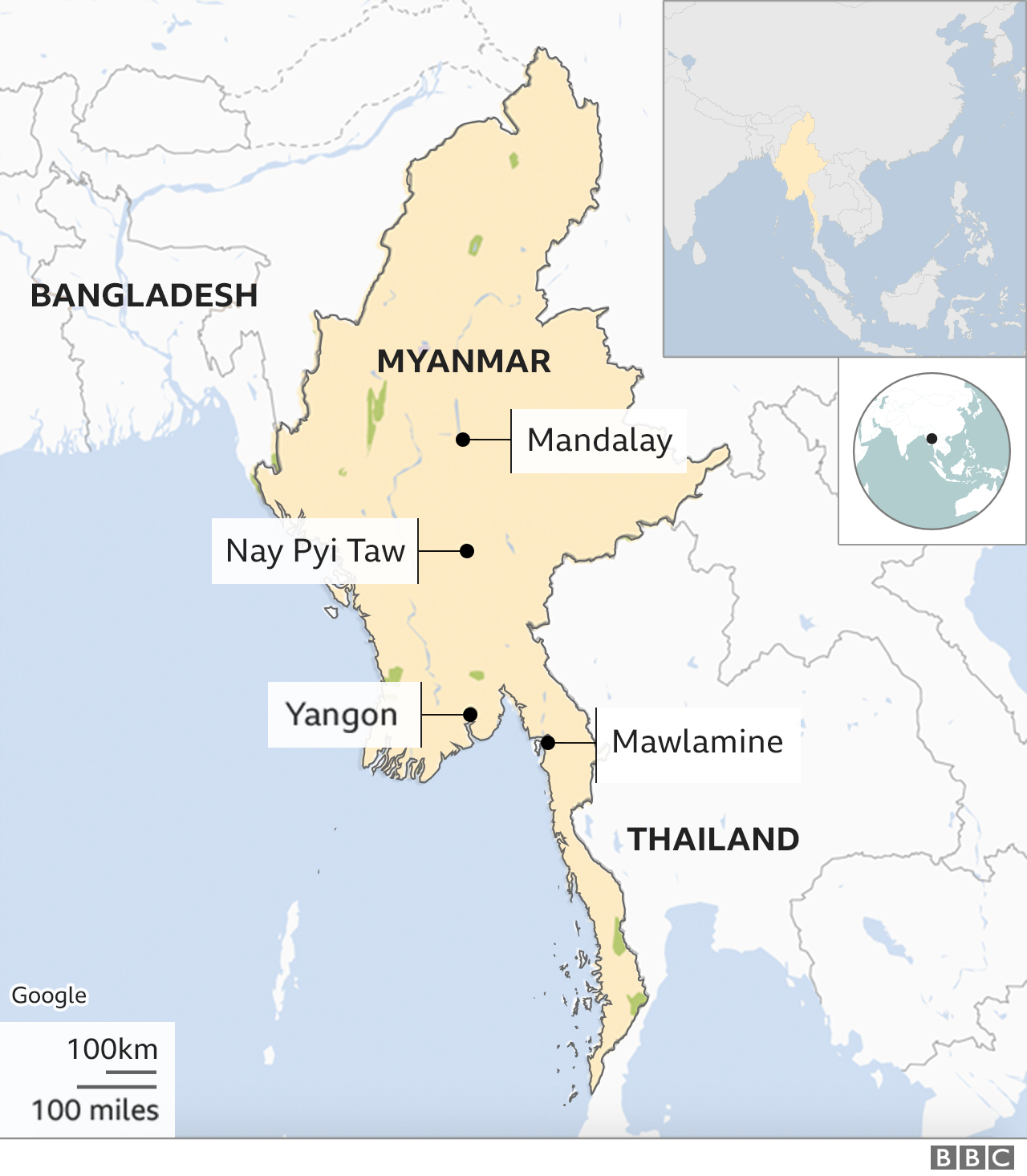


Have you been affected by recent events in Myanmar? You can share your experience by emailing haveyoursay@bbc.co.uk, external.
Please include a contact number if you are willing to speak to a BBC journalist. You can also get in touch in the following ways:
WhatsApp: +44 7756 165803
Tweet: @BBC_HaveYourSay, external
Please read our terms & conditions and privacy policy
If you are reading this page and can't see the form you will need to visit the mobile version of the BBC website to submit your question or comment or you can email us at HaveYourSay@bbc.co.uk, external. Please include your name, age and location with any submission.
Related topics
- Published2 February 2021
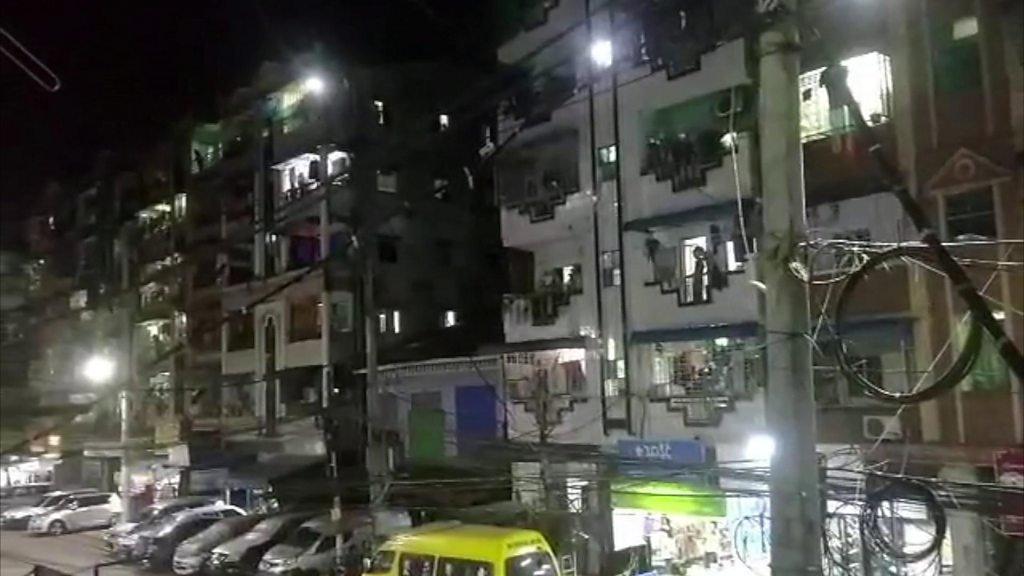
- Published25 July 2022
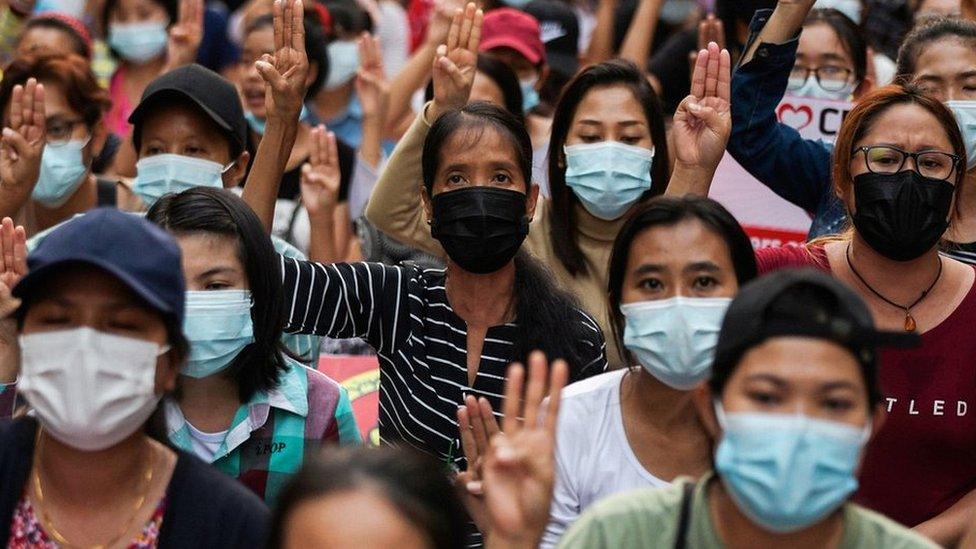
- Published7 February 2021
